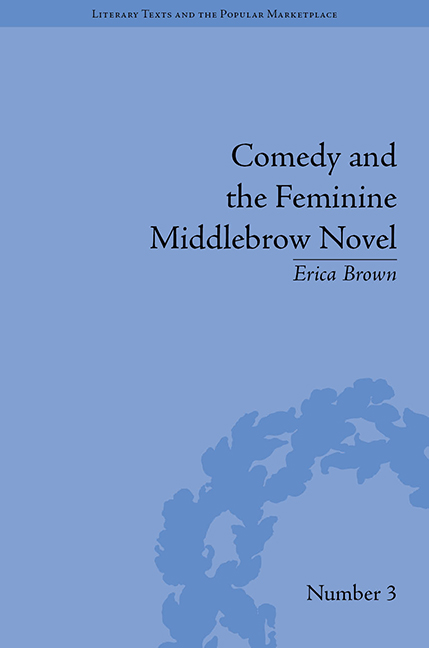Book contents
- Frontmatter
- CONTENTS
- Acknowledgements
- Introduction
- 1 The Middlebrow and Comedy: Elizabeth Taylor and Elizabeth von Arnim's Cultural and Literary Context
- 2 A Comedic ‘Response’ to War? Elizabeth von Arnim's Christopher and Columbus (1919) and Mr Skeffington (1940), and Elizabeth Taylor's At Mrs Lippincote's (1945)
- 3 ‘One Begins to See what is Meant by “They Lived Happily Ever After”’: Elizabeth von Arnim's Vera (1921) and Elizabeth Taylor's Palladian (1946)
- 4 ‘One Shudders to Think what a Less Sophisticated Artist would have Made of It’: The Comedy of Age in Elizabeth von Arnim's Love (1925) and Elizabeth Taylor's In a Summer Season (1961)
- Conclusion
- Notes
- Works Cited
- Index
2 - A Comedic ‘Response’ to War? Elizabeth von Arnim's Christopher and Columbus (1919) and Mr Skeffington (1940), and Elizabeth Taylor's At Mrs Lippincote's (1945)
- Frontmatter
- CONTENTS
- Acknowledgements
- Introduction
- 1 The Middlebrow and Comedy: Elizabeth Taylor and Elizabeth von Arnim's Cultural and Literary Context
- 2 A Comedic ‘Response’ to War? Elizabeth von Arnim's Christopher and Columbus (1919) and Mr Skeffington (1940), and Elizabeth Taylor's At Mrs Lippincote's (1945)
- 3 ‘One Begins to See what is Meant by “They Lived Happily Ever After”’: Elizabeth von Arnim's Vera (1921) and Elizabeth Taylor's Palladian (1946)
- 4 ‘One Shudders to Think what a Less Sophisticated Artist would have Made of It’: The Comedy of Age in Elizabeth von Arnim's Love (1925) and Elizabeth Taylor's In a Summer Season (1961)
- Conclusion
- Notes
- Works Cited
- Index
Summary
Until the 1990s, most studies of ‘war literature’ were primarily concerned with writing by men that dealt with the battlefront and men's combat experience. Since then, several feminist scholars including Claire Tylee, Gill Plain, Jenny Hartley and Phyllis Lassner have reinscribed women's writing into accounts of both World War I and II. In their reappraisal of the writing of the period, these scholars have turned attention to fiction considered middlebrow, and their studies of women's war-time writing form a significant proportion of the criticism that addresses the ‘feminine middlebrow’.
Claire Tylee's aim in The Great War and Women's Consciousness (1990) is to discover whether there exists an imaginative memory of World War I that is distinctively women's. Jenny Hartley's Millions Like Us: British Women's Fiction of the Second World War and Phyllis Lassner's British Women Writers of World War II: Battlegrounds of Their Own (both published in 1997) aim to challenge accounts of the period which argue that, unlike in World War I, novelists failed to respond to the impact of World War II, and that the work of literary value from this period was produced only by men. Lassner notes that ‘many surveys of British World War II literature reflect critical values that predetermine the neglect of women's war writing. By defining war literature as representing combat experience, critics omit the writing of those who merely suffered through the Blitz, the aerial bombardment of British cities in 1940 and 1941, and for whom home front and battlefield merged.’
- Type
- Chapter
- Information
- Comedy and the Feminine Middlebrow NovelElizabeth von Arnim and Elizabeth Taylor, pp. 29 - 64Publisher: Pickering & ChattoFirst published in: 2014



